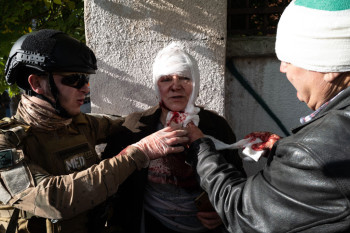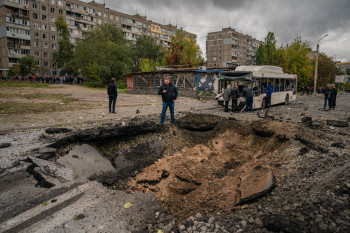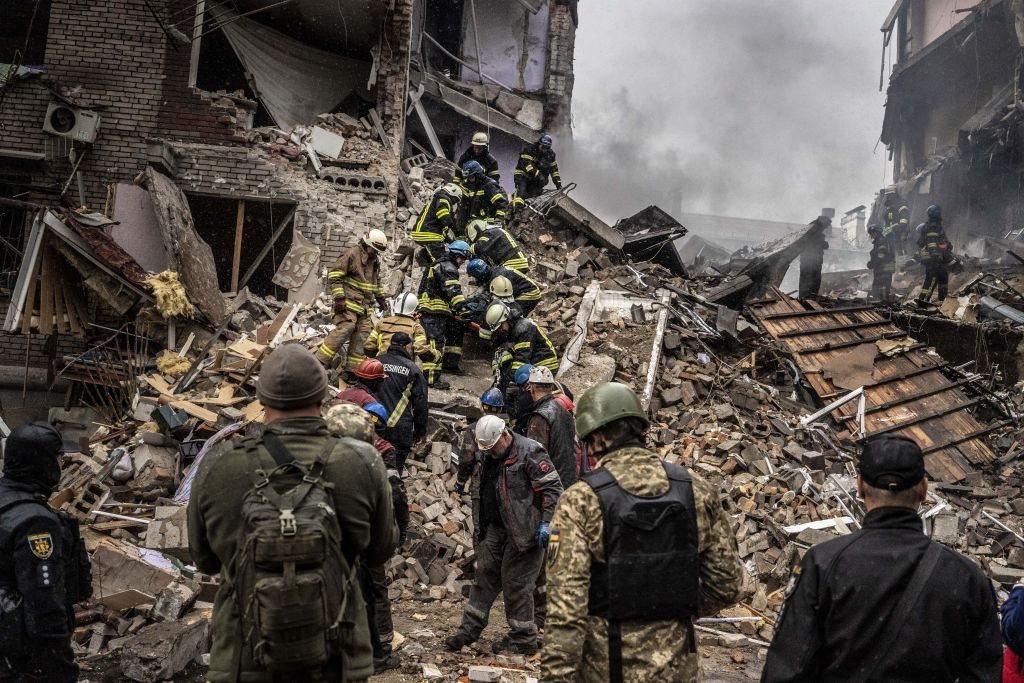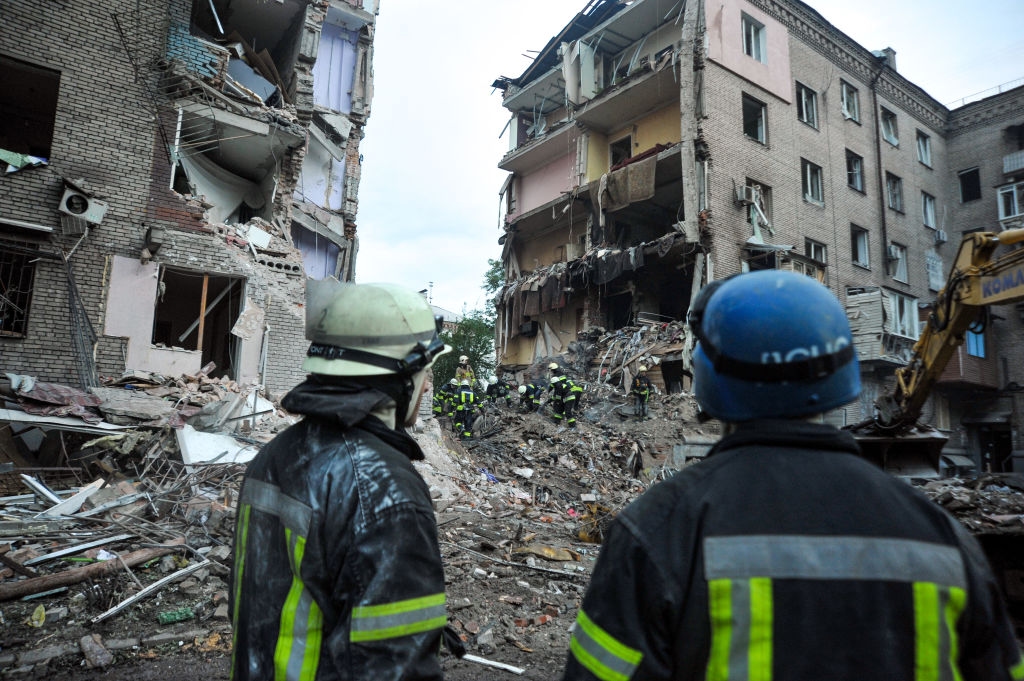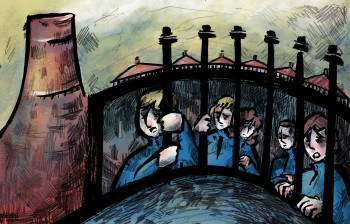Ukraine war latest: Russia again strikes Ukraine’s energy system
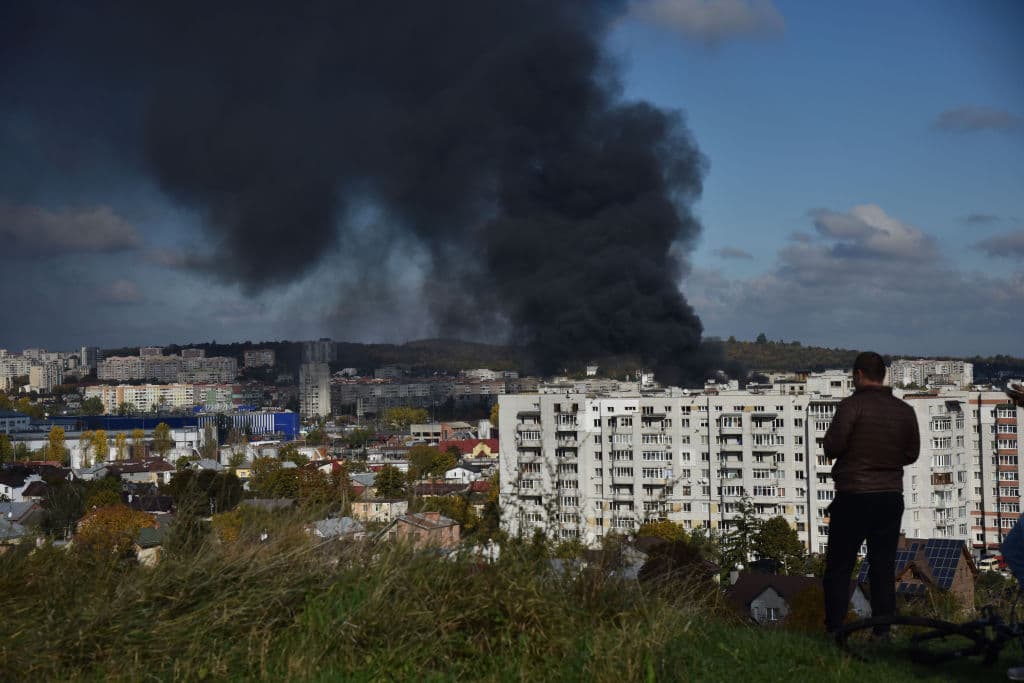
Key developments on Oct. 11
- Russia launches nearly 30 missiles, 7 airstrikes across Ukraine, targeting critical infrastructure
- Russia kidnaps another senior official from occupied Zaporizhzhia nuclear power plant
- Zelensky calls for international observers to monitor Ukraine-Belarus border
- G7 vows to support Ukraine ‘as long as it takes’
Russia continued to target Ukraine’s energy infrastructure on Oct. 11, a day after launching its largest coordinated strike on Ukraine since the beginning of the full-scale invasion. The attack killed at least 20 civilians and wounded 108 nationwide, according to the State Emergency Service.
Russia’s Defense Ministry named Ukrainian energy infrastructure among its key “designated targets.”
Targeting vital public infrastructure, such as electricity, is a violation of the Geneva Conventions.
Another Russian attack on normally quiet regions in western Ukraine, far from the front line, caused sporadic power outages once again.
Three Russian missiles struck two energy facilities in and near Lviv, which both had also been targeted on Oct. 10, leaving 30% of the city without electricity, according to Lviv Oblast Governor Maksym Kozytsky. A 53-year-old man was wounded by shrapnel during the attack.
Lviv had largely escaped the brunt of the war, welcoming flocks of evacuees from front-line regions seeking safety. But on Oct. 10, the city suffered one of its worst-ever attacks, leaving Lviv in complete darkness.
Kozytsky said that four electrical substations in the region suffered “significant destruction” over the past two days. He urged residents to charge up their phones and have power banks ready in advance.
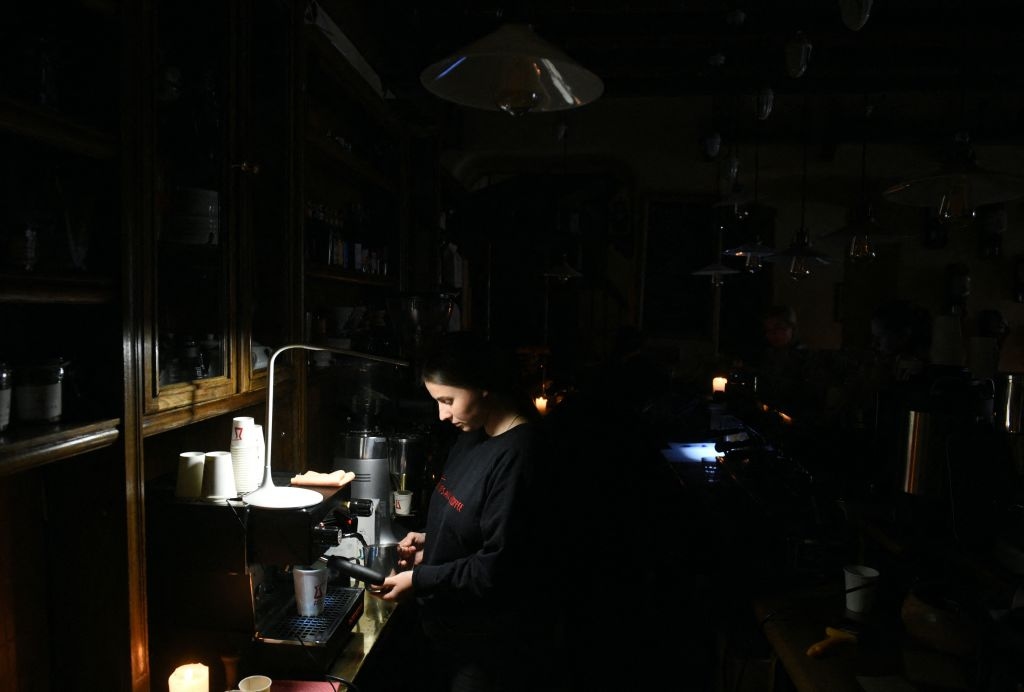
A thermal plant in another western Ukrainian region of Vinnytsia was also struck again on Oct. 11, energy company DTEK said. Just as rescuers were still working at the site, Russia’s Iranian-made kamikaze drones hit the facility again, inflicting further damage. Six people were hospitalized after the attack.
Energy infrastructure in two areas of central Dnipropetrovsk Oblast had come under attack as well. The strike caused “serious destruction” that left many settlements without electricity, Dnipropetrovsk Oblast Governor Valentyn Reznichenko reported.
Prime Minister Denys Shmyhal earlier said that 11 critical infrastructure sites in eight regions had been damaged on Oct. 10. He called on Ukrainians across the country to save up electricity.
Over 1,300 settlements across Ukraine were still cut off from electricity as of morning due to the attacks, Interior Minister Denys Monastyrsky said on TV.
Foreign support
During a virtually held G7 emergency meeting on Oct. 11, President Volodymyr Zelensky called on leaders to provide more air defense systems to Ukraine, calling the task his “number one priority.”
Western and Ukrainian officials said a lack of air defenses was one of Ukraine’s main weaknesses to protect its cities from further possible attacks, the Financial Times reported. Kyiv’s sky is understood to be the best protected out of all Ukrainian cities, but the first-ever strikes that hit multiple locations in central Kyiv on Oct. 10 show that there may be some slips.
Earlier on Oct. 10, U.S. President Joe Biden promised to provide “more advanced air defense systems.” After months of waiting, Germany provided its most modern air defense Iris-T SLM to Ukraine on Oct. 11, Spiegel reported.
At the G7 meeting, Zelensky also said "Russia is trying to directly draw Belarus into this war, playing a provocation that we are allegedly preparing an attack on this country.” He said that Ukraine has never had such a plan and called for international observers “to monitor the security situation” at Ukraine’s border with Belarus.
The G7 leaders vowed to continue supporting Ukraine “as long as it takes,” condemning Russia’s “indiscriminate attacks” that constitute “a war crime.” They pledged in a statement that the group will “hold President Putin and those responsible to account.”
Meanwhile, Russian President Vladimir Putin will likely be meeting Turkish President Tayyip Erdogan to discuss Istanbul’s proposal for possible talks “between Russia and the West” in Kazakstan on Oct. 13, according to emerging media reports.
Ongoing counteroffensive
The Ukrainian counteroffensive continued in the country’s east and south on Oct. 11.
Ukrainian forces are inflicting damages on Russian ammunition depots and equipment to make it harder for Moscow to pull up more reserves, the Southern Military Command’s spokeswoman Nataliia Humeniuk said on TV.
Humeniuk added that the fortifications that Russians had built in the south are only strong enough to give them enough time to escape.
As Ukrainians push further into the southern Kherson Oblast, panic appears to be spreading in this largely occupied region. Russia’s proxy leader in Kherson Oblast Volodymyr Saldo said he was in favor of using the death penalty to punish Ukrainians who don’t support Russian occupation, as well as those who don’t believe that everything is “calm” in the region.
Kherson Oblast is among the four Ukrainian regions that the Kremlin illegally declared as part of Russia on Sept. 30.
In eastern Luhansk Oblast, some Russian commanders deeper into occupied territory have begun abandoning their units, leaving the newly mobilized ones behind, according to the exiled oblast’s governor Serhiy Haidai.
The Ukrainian military repelled Russian attempts to advance near six settlements in Donetsk Oblast, the General Staff of Ukraine’s Armed Forces reported.
Casulaites and attacks
Russian forces launched about 30 cruise missiles and seven airstrikes across Ukraine, according to Ukraine’s General Staff.
Donetsk Oblast Governor Pavlo Kyrylenko said on Oct. 11 that six people were killed and eight others were wounded over the past 24 hours in his region.
In the liberated cities of Lyman and Sviatohirsk, Donetsk Oblast, 78 bodies were exhumed from mass burial sites, some of which contained signs of “violent death,” the prosecutors said.
Kharkiv Oblast Governor Oleh Syniehubov said Russian forces continued to fire upon the region over the past day, wounding a 52-year-old man near Kharkiv.
Zaporizhzhia in southeast Ukraine was attacked once again with a barrage of 12 missiles, hitting public facilities and killing a person, Governor Oleksandr Starukh reported early on Oct. 11.
Russia has recently ramped up its attacks on Zaporizhzhia, the only regional capital it failed to capture in four regions it illegally declared annexed in September. Since Oct. 3, at least 50 people have been killed and at least 77 others wounded by Russian bombardment of the city.
Deputy Head of the President’s Office Kyrylo Tymoshenko said late on Oct. 11 that another seven deaths and seven injuries were reported in Zaporizhzhia Oblast.
In the region’s occupied town of Enerhodar, Russia has kidnapped the deputy head of the Zaporizhzhia Nuclear Power Plant, Valerii Martyniuk, allegedly torturing him in a hidden location, Ukraine’s state nuclear company Energoatom reported.
Russia is likely trying to get information from Martyniuk about the plant’s staff to coerce them into working for Russia's nuclear corporation Rosatom “as soon as possible," Energoatom said in a statement.
Earlier on Sept. 30, the head of the plant was abducted on his way home but he returned safely to his family after a couple of days in Russian captivity.

